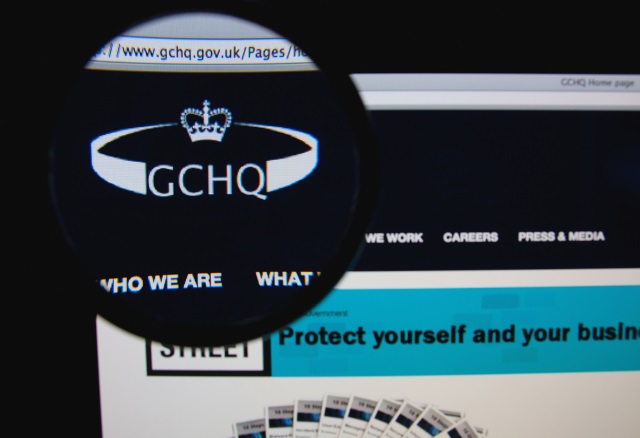
DVSA's technology modernization journey
The DVSA (Driver and Vehicle Standards Agency), which focuses on improving road safety in Britain by setting and enforcing the standards for vehicles, driving and motorcycling, is transforming its technology landscape from primarily outsourced contracts to in-sourced agile delivered services using a combination of vendors and employees. As part of this, the agency has deployed a technology service desk.
Known as the Technical Support Service, it supports the DVSA’s new MOT software application currently in use by thousands of MOT testers around the UK delivering around 150,000 MOT tests daily. Here I will explain the modernization journey and why it was vital to support the agency’s strategic direction.

UK IT pros believe Brexit will not impact their career
It seems that Brexit fears, at least when IT is concerned, have been largely unsubstantiated. A new report by Dice says IT experts have reasons to feel optimism as they head into 2017, based on a poll of 1,000 tech professionals.
Just under a quarter (22 percent) feel optimistic about the future of the tech job market. More than half (53 percent) don't think Brexit would have a negative impact on their career plans. Almost one in ten (nine percent) are now "much more optimistic". One in five (19 percent) believe Brexit will have a positive impact on the country’s tech sector before 2017 ends.

Employees' bad security habits put businesses in danger
Employees have poor security practices and use completely unsecured private devices for work, putting their organizations at huge risk of cyber-attacks, a new report by WinMagic says. After polling workers in the UK, the report says more than four in ten (42 percent) use private devices for work, accessing corporate data and e-mail accounts.
More than half (52 percent) use private accounts, including enterprise file sharing services (EFSS), which they use to either store or access corporate files. Only a third (34 percent) say they had never done so. Laptops, smartphones and USB devices are the top three personal devices used for work, and Hotmail, Gmail and Dropbox are the top three online services used by employees.

Many of UK's NHS trusts continue to rely on Windows XP
Nine in ten NHS trusts still rely on Windows XP, even though Microsoft stopped supporting the platform with new patches and security fixes a year and a half ago.
This information was released by Citrix, and it is based on a Freedom of Information (FoI) request. Out of 63 trusts Citrix reached out to 43 responded, and 90 percent say they still use Windows XP.

Artificial intelligence can improve productivity
There is a challenge, both within and out of the workplace, which we have all faced at some point when tackling a task. We have the skills. We have the ability. We know what we need to do, and yet an activity becomes a chore, and a time-consuming burden.
The productivity puzzle is a broad, complex one, but this is undoubtedly one facet of it. Mundane activities without question are often crucial to our day to day, and need to be done. But as humans we need mental stimulation, and the creative applications of our skills to keep us engaged. When these creative opportunities are limited, when occupations risk becoming a cycle of repetitive or dull activity and productivity suffers.

Senior leaders holding new tech adoption back
IT managers in UK organizations believe their senior leaders are intentionally holding back the adoption of new technologies, as they fear that could endanger their position within the company. This is according to a new report by global cloud communications provider 8x8, which surveyed 260 IT managers in UK organizations.
Almost half (45 percent) of IT managers are suspicious senior leaders are holding technology back for reasons of "self-preservation". Same IT managers, a third of them (34 percent), believe their company is making full use of the latest technology. Among C-suites, that percentage is up to almost a half (49 percent).

70 percent of smaller IT businesses don't see Brexit as a threat
Despite the widespread predictions of Armageddon that preceded June's vote on the UK leaving the European Union, new research reveals that a majority of companies in IT and computing don't see Brexit as a threat.
The research by commercial insurer RSA shows that 70 percent of small and medium businesses in IT and computing don't see Brexit as a risk. Of those surveyed 43 percent say that leaving the EU will have no impact at all, and 27 percent say it will have a positive effect on their business.

UK bank will let customers withdraw cash using their smartphone
UK bank Barclays is testing a new feature for cash withdrawals which should eliminate skimming at ATM machines, the BBC reports. The idea is similar to contactless and mobile payment systems -- you wave your smartphone close to an ATM machine and, when prompted, type in your PIN code in either the smartphone or the ATM.
The bank says that way it will make it much harder to hijack card details. The new feature is being tested for Android-powered devices only, with iPhones being out of the picture. Apple has limited the use of iPhone NFC chips to their own Apple Pay technology, making it impossible for Barclays to use the device. However, those that don't have an Android phone will be able to use an NFC-enabled card.

Tech salaries are up in the UK
The technology skills gap is working well for those already in the industry, as the salaries for these positions in the UK just keep going up. According to a new Dice report, tech jobs have seen an increase of five percent, on average, in salaries, in the last 12 months.
The highest average pay was spotted for program managers, with these positions getting a six percent increase in salaries, up to £78,847 for permanent roles. Contractors have day rates of £600 now, 1.5 percent up compared to last year.

IBM will build four new data centers in UK
IBM has announced its commitment to a multi-million pound project that will see the company construct four new data centers in the UK to increase its cloud capabilities in the region.
The company revealed its new project ahead of the Autumn Statement, which offered a boost to the Government that has recently seen a number of large US technology companies increasing their operations in the country. IBM's decision to create four new data centers will triple its cloud computing capacity in the UK.

56 percent of Brits want to move to the Moon
Whether it's a result of Brexit or they're simply sick of the weather, a new survey reveals that 56 percent of British people would like to move to the Moon. If money were no object 19 percent also say they would buy a holiday home on Mars.
Product development company Arconic surveyed 1,000 people in the UK to find out how they thought technology would develop over the next 50 years.

UK businesses are not keen to embrace AR
Businesses are reluctant to accept augmented reality, a new survey by ISACA has shown. The main reasons for this reserved stance is that they don’t believe the benefits are bigger than the risks of implementing the new technology.
The findings were published in ISACA’s new report, entitled IT Risk/Reward Barometer, which polled 363 UK professionals. Less than a fifth (18 percent) currently believe the benefits of AR are bigger than the risks, and 40 percent say that both organizations and consumers should be "very concerned" about the privacy risks that go with the implementation of augmented reality tech.

Google will offer digital skills training for free in UK
Google has just announced that it will be offering free digital skills training to everyone in the UK with the aim of ensuring that the country's population is able to take advantage of its online tools.
The company's CEO Sundar Pichai offered further details regarding Google's latest program, saying: "No matter where you live, no matter where you're from, no matter what your job is – you deserve access to all the information, education, and opportunity the web has to offer. Our aim is to make sure that every individual and business in the UK has the support they need to make the most of online tools to innovate, compete and have fruitful careers in the digital age".

Test email brings UK's NHS to its knees
The entire email system of the UK NHS (National Health System) crashed on Monday after an IT contractor sent out a "test email" to all of the 1.2 million staff using the system.
News of the crash first appeared after NHS staff began to complain about the test email they had received from an IT contractor in Croydon on Twitter. The email itself was sent to everyone in the organization and that along with the high number of replies sent out caused the entire email system to be overloaded and go offline.

GCHQ belives ISPs can prevent all DDoS attacks
The head of of the GCHQ believes that distributed denial of service (DDoS) attacks could be eliminated completely if internet service providers (ISPs) were to completely rewrite their software and its code.
The technical director of GCHQ's National Cyber Security Centre, Ian Levy, is already preparing to engage in talks with ISPs, such as BT, over how they could be the key to ending DDoS attacks. After the cyber attacks that occurred as a result of the Mirai malware were made public, GCHQ made it a priority to prevent further attacks that could be launched using the same measures.
